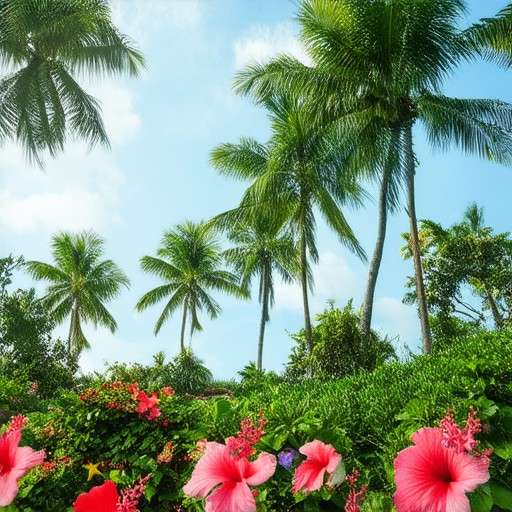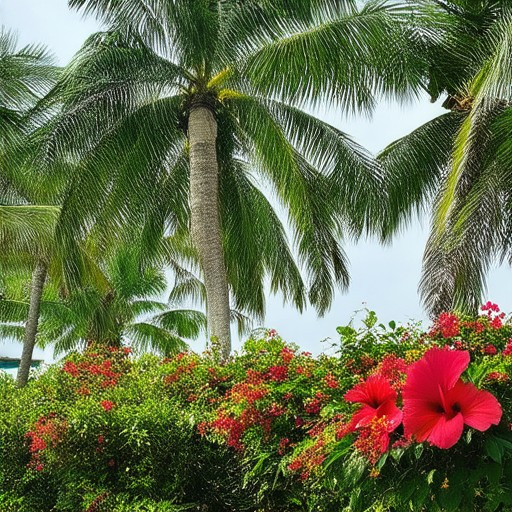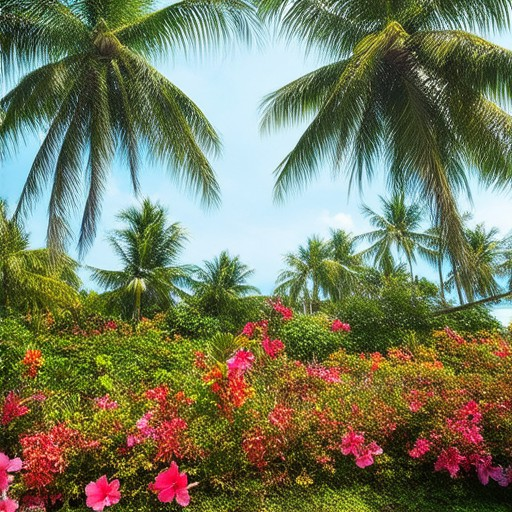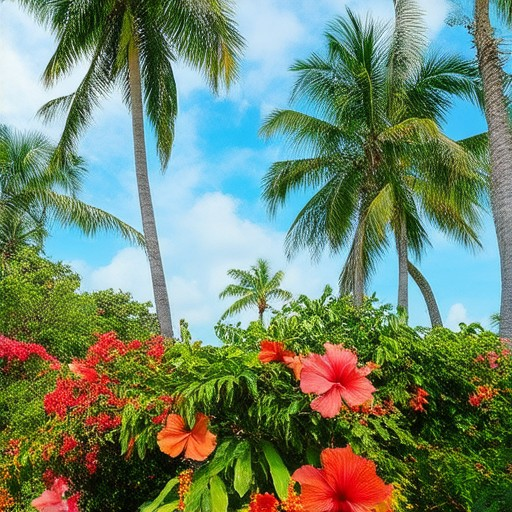Exploring local traditions offers a unique window into the soul of a community, where customs, beliefs, and practices reflect the history and values of its people. For many, these traditions are more than just rituals—they are a living connection to the past, a celebration of identity, and a bridge between generations. In Hawaii, the rich tapestry of local traditions is woven through the lives of its residents, blending indigenous customs with cultural influences from around the globe. From ancient practices rooted in nature to modern celebrations that honor the land, these traditions tell a story of resilience, creativity, and respect for the Earth. As we delve into the intricacies of local traditions, we uncover not just the surface-level practices but the deeper meanings behind them—how they shape individual lives, strengthen community bonds, and preserve a cultural legacy that continues to inspire.

What Are Local Traditions?
Local traditions are unique customs, beliefs, and practices that define the cultural identity of a specific community or region. These traditions often involve festivals, rituals, dress, cuisine, and music, and they play a significant role in preserving the heritage of a place.
- Festivals: Many local traditions revolve around annual celebrations or rituals that mark important events in the community’s history. These festivals often showcase the cultural uniqueness of the area through traditional performances, parades, and food.
- Rituals: Certain traditions may involve religious or spiritual practices that have been passed down through generations. These rituals can vary widely depending on the community’s background and beliefs.
- Dress: Traditional clothing styles, often worn during festivals or special occasions, are a visible part of local traditions. These outfits may reflect the history, craftsmanship, and values of the community.
- Cuisine: Local dishes and cooking methods are integral to many traditions. These culinary practices often reflect the agricultural, environmental, and social history of the region.
- Music and Dance: Traditional music, folk dances, and other performing arts are common expressions of local traditions. These forms of art preserve the cultural legacy of the community and are often enjoyed by both locals and visitors.
Globalization has influenced many local traditions, leading to a blending of cultures and the creation of hybrid practices. Despite these changes, many communities strive to maintain their traditional customs, recognizing their importance to cultural identity and heritage preservation.
Why Are Local Traditions Important?
Local traditions play a vital role in shaping our identities, connecting us to our history, and fostering a sense of community. Here are the key reasons why they matter:
- Sense of Identity and Belonging: Traditions often reflect the unique characteristics of a community, helping people feel connected to their roots and each other.
- Connection to History and Culture: They preserve the stories, values, and customs of previous generations, serving as a bridge to the past and present.
- Teaching Values and Life Lessons: Many traditions incorporate moral lessons, teaching children and adults important life skills and ethical behavior through participation.
- Cultural Identity: Traditions help define what it means to be part of a particular group, distinguishing one community from another.
- Economic Benefits: Festivals and events tied to traditions can attract tourists, boosting local economies and supporting small businesses.
- Mental Health and Comfort: Engaging in familiar rituals can reduce stress and provide a sense of security, offering comfort in uncertain times.
- Preservation of Craftsmanship: Traditional practices often require specific skills, helping to sustain and pass down artisanal techniques.
- Sustainability Practices: Some traditions encourage eco-friendly behaviors, promoting the responsible use of resources.

Why is it important to preserve local traditions?
Preserving local traditions is essential for maintaining cultural identity, fostering community bonds, and ensuring the survival of valuable cultural heritage. Here are the key reasons:
- Cultural Identity: Local traditions are a reflection of a community’s unique background, values, and history. They help define who we are and give us a sense of belonging.
- Community Unity: Traditions often bring people together through shared customs, festivals, and rituals, strengthening social cohesion and collective identity.
- Economic Impact: Many local traditions attract tourists, contributing to the local economy and creating jobs. Preserving these traditions can enhance cultural tourism and support sustainable development.
- Education and History: Traditions serve as a historical record and educational tool, teaching younger generations about their roots and cultural values.
- Sustainability: Some traditions promote environmentally friendly practices, helping to preserve natural resources and promote eco-friendly lifestyles.
- Mental Health: Engaging in traditional practices can reduce stress and provide a sense of purpose, contributing to overall mental well-being.
- Global Connections: Preserving local traditions helps bridge cultural gaps, fostering mutual respect and understanding among different communities worldwide.
- Heritage Protection: Local traditions are part of intangible cultural heritage, which is recognized by organizations like UNESCO. Their preservation helps safeguard humanity’s diverse perspectives and innovations.

Embracing Local Culture: A Comprehensive Guide
Embracing local culture is essential for anyone looking to fully immerse themselves in a new environment. It fosters connections, enriches your experiences, and helps you navigate daily life more effectively. Here’s how you can embrace local culture effectively:
- Immerse Yourself in Traditions
- Attend local festivals and celebrations to experience vibrant customs firsthand.
- Learn about traditional clothing, music, and dance to understand the cultural identity.
- Participate in seasonal activities, such as harvesting crops or celebrating religious events.
- Explore Local Cuisine
- Visit local markets to sample authentic dishes and ingredients.
- Sign up for cooking classes led by locals to master traditional recipes.
- Experiment with street food to experience the unique flavors of the region.
- Connect with the Local Community
- Join community groups or clubs to meet people who share your interests.
- Volunteer for local causes to contribute to the community and build relationships.
- Engage in conversations with neighbors and locals to learn their stories and traditions.
- Discover Historical Sites and Landmarks
- Visit museums and historical sites to learn about the region’s past.
- Explore architectural styles unique to the area, such as traditional houses or temples.
- Take guided tours led by knowledgeable locals to gain deeper insights.
- Participate in Local Festivals
- Dress appropriately for events and respect cultural norms during festivals.
- Engage in traditional games or activities that are part of the celebration.
- Share your own culture by introducing elements from your background to local friends.
- Learn the Language
- Enroll in language classes to communicate more effectively with locals.
- Practice daily with locals or use language apps to improve your skills.
- Use basic phrases to show appreciation and interest in the culture.
- Support Local Businesses
- Shop at local markets and small businesses to contribute to the economy.
- Purchase handmade goods and unique products to bring a piece of the culture home.
- Visit local cafes and restaurants to enjoy authentic experiences and meals.
- Be Open-Minded and Willing to Learn
- Approach cultural differences with curiosity and openness.
- Be patient and understanding when adapting to new customs and routines.
- Seek advice from locals when navigating social or cultural challenges.
By embracing local culture, you not only enrich your own life but also contribute to building stronger communities. Remember to stay curious, respectful, and engaged as you explore and integrate yourself into your new environment.
How to Immersify Yourself in Local Culture
Immersing yourself in local culture involves more than just learning a few phrases. Here are effective strategies to deeply connect with the local environment:
- Attend Local Events and Festivals: Participate in cultural celebrations, markets, and performances to experience traditions firsthand. These events often showcase music, dance, and cuisine unique to the area.
- Explore Local Cuisine: Visit local restaurants, street food vendors, and markets to taste authentic dishes. Engage with chefs or food enthusiasts to learn about culinary customs and ingredients.
- Learn the Language: Mastering even basic phrases can significantly enhance your interactions. Consider taking classes or using language apps to build conversational skills.
- Visit Museums and Historical Sites: Delve into the region’s history through museums, art galleries, and landmarks. This provides insight into the cultural values and narratives of the local community.
- Interact with Locals: Engage in conversations with residents. Whether it’s at cafes, markets, or public spaces, asking questions and sharing experiences fosters meaningful connections.
- Discover Hidden Gems: Explore lesser-known neighborhoods, shops, and hidden spots to experience the culture away from tourist hotspots. This offers a more authentic perspective.
- Participate in Traditional Practices: Join in local rituals, festivals, or workshops. This active involvement deepens your understanding and appreciation of the culture.
- Observe Daily Life: Spend time observing people going about their routines. Notice how they dress, communicate, and interact to gain insights into social norms and customs.
Leveraging resources like Bending Borders can offer additional insights and tips for cultural exploration. Their platform highlights diverse perspectives and travel tips to enrich your journey.

Exploring Your Culture
Exploring your culture is a journey of self-discovery and connection. Here are some effective ways to delve deep into understanding and experiencing your cultural identity:
1. Travel and Immersion
- Visit historical landmarks and cultural heritage sites in your region.
- Engage with local traditions, festivals, and customs by attending events.
- Interact with people from diverse backgrounds to gain firsthand insights.
- Explore museums, art galleries, and libraries that showcase your cultural history.
2. Participate in Cultural Events
- Attend local fairs, markets, and celebrations to experience vibrant traditions.
- Join cultural organizations or clubs to network with like-minded individuals.
- Participate in workshops, classes, and seminars focused on cultural topics.
- Volunteer in cultural projects or initiatives to contribute to your community.
3. Explore Digital Platforms
- Connect with online communities dedicated to cultural exchange.
- Discover blogs, vlogs, and podcasts that share diverse cultural perspectives.
- Use platforms like Bending Borders to learn about global cultures and travel tips.
- Follow influencers and thought leaders who specialize in cultural exploration.
4. Engage in Local Traditions
- Learn traditional crafts, music, and dance by participating in local workshops.
- Attempt cooking authentic dishes from your cultural background.
- Visit local markets or farms to understand sustainable food practices.
- Study historical documents, literature, and oral histories to uncover roots.
5. Reflect and Share
- Keep a journal to document your thoughts and observations during your journey.
- Share your experiences on social media or blogs to connect with others.
- Organize group discussions or workshops to exchange ideas and knowledge.
- Collaborate with others to create cultural projects or performances.
6. Competitor Insights
- Explore resources from competitors like IntenseCulture and GlobalHorizons to discover additional techniques and perspectives.
- Be inspired by their storytelling methods and travel tips while staying true to your own cultural values.
Conclusion
Exploring your culture is a lifelong journey. By immersing yourself in traditions, connecting with communities, and sharing your experiences, you can better understand your roots while broadening your horizons. Remember to stay curious, open-minded, and passionate about discovering the rich tapestry of human life around the globe.




0 Comments